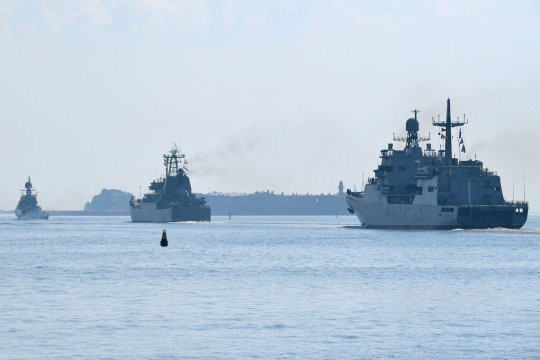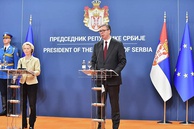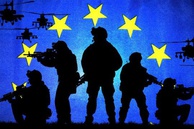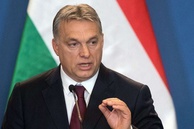On May 22, there was a flurry of alarmist statements coming from Baltic and Finnish politicians, who, “just in case,” saw the proposals made by the Russian Defense Ministry the day before as a threat. The draft resolution by the government of the Russian Federation prepared by military experts to clarify the coordinates of the points that determine the position of the baselines for measuring the width of territorial waters off the mainland coast and islands in the Baltic Sea came as a big surprise causing a shock reaction from “talking heads” in the region. Since the information about data verification concerns the water area off the coast in the Kaliningrad region and in the east of the Gulf of Finland, Vilnius and Helsinki were the first to cry foul.
The Lithuanian Foreign Ministry routinely stated that such intentions by Russia are “a deliberate, targeted, growing provocation aimed at intimidating neighboring countries and their societies.” Moreover, Lithuanian diplomacy sees this as “yet another proof that Russia’s aggressive and revisionist policies pose a threat to the security of neighboring states and all of Europe.” [1] Both Vilnius and Helsinki used the parasitic word “hybrid” (war, operation). In remarks, posted on a social network, Lithuania’s Foreign Minister Gabrielius Landsbergis was quick to hold Moscow responsible for his own fears and imaginary threats using, just like his colleagues in Helsinki, the parasitic term “hybrid” (war, operation): “Currently, another Russian hybrid operation is being carried out, this time trying to sow fear, uncertainty and doubts about its intentions in the Baltic sea. This is a clear escalation against NATO and the EU and must be responded to with an appropriate firm reaction.” [2]
Vilnius apparently expects quick support from NATO and its EU partners, above all from the Baltic countries, in demonstrating “unshakable Euro-Atlantic solidarity” and preparing “reciprocal” demarches against Moscow. While the Lithuanian Foreign Minister Gabrielius Landsbergis is more concerned about the media effect created by the situation at hand, his Finnish colleague Elina Valtonen is trying to sort out the “confusion” allegedly created by Moscow out of the blue. According to the Lithuanian Foreign Ministry, on Wednesday they planned to invite Russia’s Charge d'Affaires for a detailed explanation. In choosing measures and formats for further response, official Vilnius proceeds from the fact that if the Russian government starts implementing its resolution beginning next year, it might not only directly affect their national interests and bloc commitments, but even the very mention of such an intention now is an attempt to put to the test the transatlantic and regional solidarity in the anti-Russian paradigm of a “rules-based world order.”
All this speculation made by experts in Russia’s neighboring countries basically boils down to the fact that Moscow’s sudden move regarding, one way or another, certain sections of the maritime borders in close proximity to Lithuania and Finland, was a deliberate one made on behalf of the Defense Ministry with clear signs of “intimidation” in the context of the conflict in Ukraine, as it coincides with the start of military exercises with the use of non-strategic nuclear weapons. At the same time, some international experts are trying to see not only the “offensive” motives of the Russian side, but also its possible defensive logic amid the crumbling relations between the West and Russia.
In an interview with Yle broadcasting company, the director of the Alexander Institute in Helsinki, Markku Kangaspuro said: “Russia is sending a message: if they act against it, then in response it has ways of causing instability and a sense of danger.” Juri Lavikainen, a researcher at the Finnish Foreign Policy Institute, sees a clear political motive in the situation: “Under normal circumstances, Russia would not engage in a unilateral revision of territorial borders, which we learn about from the website of their Ministry of Defense ... It (Russia) is trying to create a feeling among Western countries ‘that the current international political situation is unacceptable, and therefore, they should negotiate with Russia on terms favorable to it.’” [3]
Clarifications through diplomatic channels and a comment by the presidential spokesman Dmitry Peskov, who assured that the Defense Ministry’s proposal to update the coordinates of Russia’s borders in the Baltic Sea was not politically motivated, even though the degree of confrontation in the region indeed necessitates steps to ensure Russia’s security, were meant to quell the panic attack in the Baltic states and confusion in Finland. An information “leak” by some anonymous military-diplomatic source that Moscow has no intentions to revise the width of Russia’s territorial waters, the economic zone, the continental shelf off the mainland coast and the state borderline in the Baltic [4] was made exactly with the same idea in mind.
While official Vilnius chose to persist in whipping up hysteria, Helsinki decided to put its anti-Russian escapades on pause.
“Our national legislation also stipulates that from time to time, approximately every 30 years, maritime boundaries are checked and adjusted as necessary,” Foreign Minister Elina Valtonen reminded the alarmed public and politicians. It seems to her that there are reasons to assume that in this case Russia is acting within the framework of international agreements. [5] Speaking at a news conference, Finnish Prime Minister Petteri Orpo voiced concern regarding the incoming information and noted the fact that the situation was being discussed through diplomatic channels. “The latest reports from Russia, as well as information already available in the media, indicate that this is a routine check. Russia assured that it does not mean any political maneuvers by this. This is, of course, a good sign,” Orpo concluded.
He added, however, that the issue can only be settled after careful study and conclusions have been drawn, whereas “at the moment I see no reason for concern.” The Finnish Premier also mentioned the effect of preventive mistrust caused by the deterioration of relations with Moscow due to its military operations in Ukraine: “No matter how much I would like to think about various scenarios, I still call for calm. On this issue, Russia still wanted to get across its point of view already at this stage.” [6]. That being said, the Finnish and Baltic political establishment’s craving for conspiracy theories regarding Russia’s intentions, accompanied by the whoopee slogan “The Baltic is NATO’s inland sea!” hasn’t gone anywhere.
Meanwhile, in a rather odd manner of showing solidarity with their neighbors, the Norwegian authorities have introduced additional restrictions on the entry of Russian citizens. From May 29, tourists and persons coming to the country for purposes of “non-essential importance” will be turned back. And all this simply for the sake of, as they explained, supporting their allies. As Russian Foreign Ministry spokesperson Maria Zakharova noted, this “new unfriendly step by Oslo towards Russian citizens is openly discriminatory in relation to the citizens of our country.” According to her, statements by the Norwegian authorities that these measures are not directed against Russian citizens simply hold no water.
The views of the author are his own and may differ from the position of the Editorial Board.
-----------------------------------------------------------------
[1] Position of [Lithuanian Foreign Ministry] regarding media reports about planned changes in the Russian law on state border https://urm.lt/default/ru/news/pozitsiaa-b-otnoschenii-soovshenij-smi-o-planiruemjyh-izmeneniaah-rossijskogo-zakonodatel-jstba-b-sfere-gosudarstbennoj-granitsjy
[2] Lithuanian Foreign Minister on Russia’s intention to revise its sea borders: this calls for firm response https://www.delfi.lt/ru/news/politics/glava-mid-litvy-o-namereniyah-rossii-izmenit-morskie-granicy-na-eto-nuzhno-reagirovat-zhestko-96523029
[3] Russia is trying to cause confusion and uncertainty: experts on Moscow’s desire to change sea borders https://yle.fi/a/74-20089909
[4] Peskov said that the proposal about the coordinates of Baltic Sea borders is not politically motivated https://tass.ru/politika/20871853
[5] Finnish Foreign Minister Valtonen: Russia must abide by the UN Convention on the Law of the Sea – Finland was not caught flat-footed https://yle.fi/a/74-20089908
[6] Orpo on Russia’s intention to redraw sea borders: “The matter is being clarified. There is no reason for alarm” https://yle.fi/a/74-20090000
read more in our Telegram-channel https://t.me/The_International_Affairs

 12:08 28.05.2024 •
12:08 28.05.2024 •



























